I miss the Soviet hammer and sickle. When I first visited Russia – then called the Soviet Union – the symbol was everywhere, along with those treacly-romantic billboards of Vladimir Lenin reading to children: the patriarch who would solve everything.
As a symbol of proletariat solidarity, the hammer and sickle was terrific branding (peasantry and working-class unite!), a promise of real power to ordinary folk – thank you Bolsheviks.
Well, that didn’t work out.
Still, if you visit Russia now (or once you can travel again), you will find plenty of working class vibrancy, but alas, few peasants. In fact, compared to my first visit to Russia in 1985, the country has tons more spirited energy and drive.

Double delight: Moscow and St. Petersburg
In January, I visited Moscow and St. Petersburg – you can read about the Moscow trip in a previous post, including that city’s unparalleled winter festival that’s blitzed out with light displays (likely viewable from space). The dual city itinerary was sponsored by Firebird Tours.
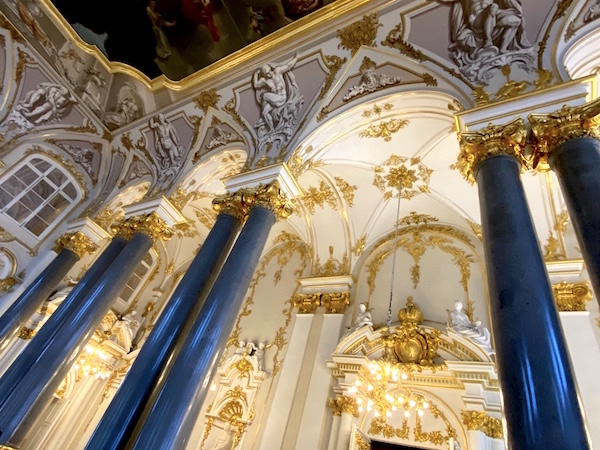
St. Petersburg matched the cosmopolitan intrigue of Moscow in its own fashion – being the western-influenced dream of Tsar Peter the Great. Situated along three radial streets, the most famous being Nevsky Prospekt, St. Petersburg is drenched in Baroque architecture. The style dominated during its first half-century or so.
If you’re looking for high culture in Russia, this is the city to visit.
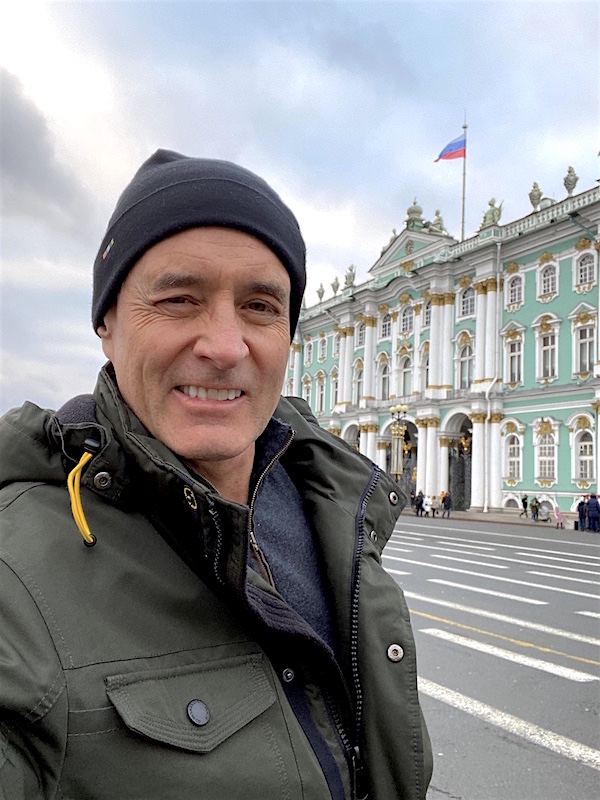

Remarkable jaw-dropping churches
The city’s churches are, predictably, stunners – every single one of them. Start with Saint Isaac’s Cathedral that now operates as a museum, although I’ve heard it will soon be handed over to the Russian Orthodox Church. (I love when ancient churches are secularized, the most successful example being Istanbul’s Hagia Sophia.)
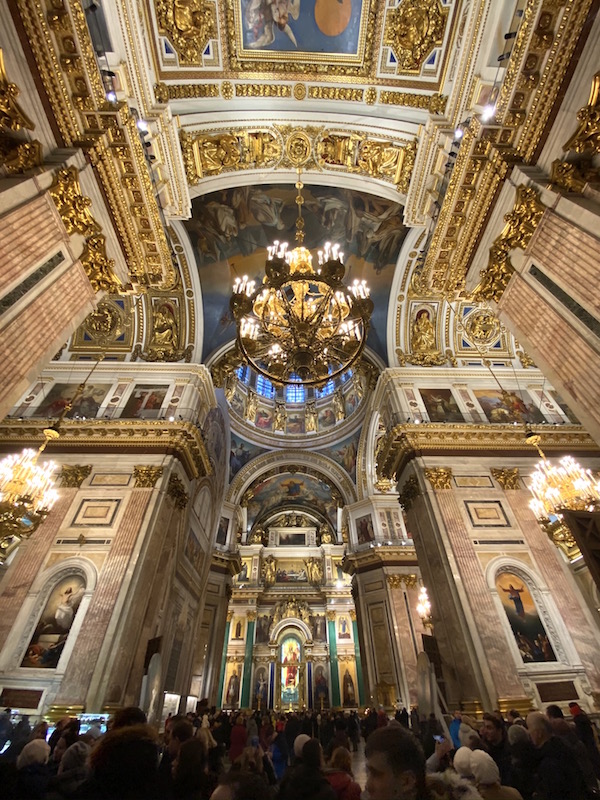
Completed in the mid 1800s, the cathedral took 40 years to build. It’s a hulking sight, as ponderous a neoclassical structure as you’ll find. It might look familiar. The United States Capitol dome is patterned after the design, conceived by Auguste de Montferrand.
Saint Isaac’s is the city’s second-tallest building, the first being Saints Peter and Paul Cathedral.
Inside, there are three altars amid a blast of 900 pounds of gold, 1,000 tons of bronze, 16 tons of malachite – all inset with over 1,000 pounds of lapis lazuli. Yep, it’s an eyeful. Just pick a quiet corner and look around – notice.
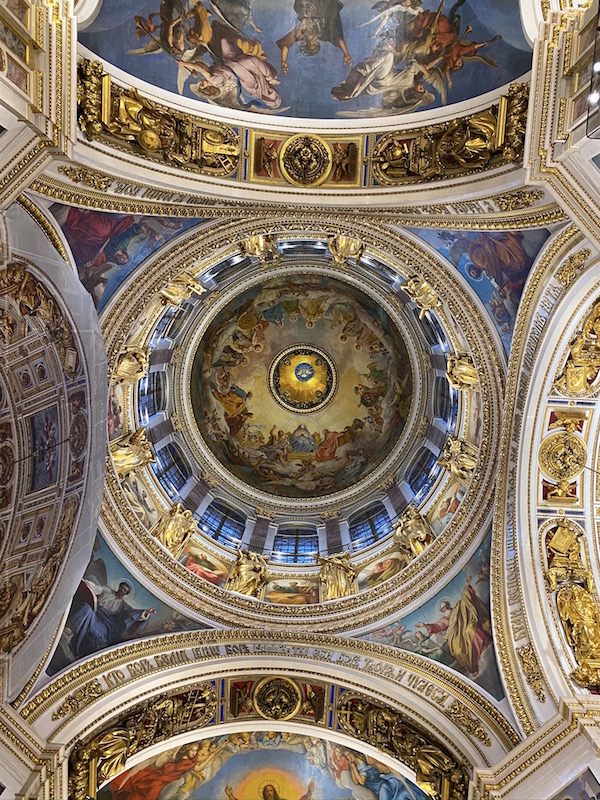
A spire to pierce the sky
You can spot Saints Peter and Paul Cathedral by its golden needle spire rising 404 feet from a slender nave. What’s inside, however, is incredibly more wondrous.
Built in the early 1700s, the cathedral houses the tombs of nearly all of the Russian emperors – including the murdered Nicholas II and his family, interred in 1998.

The church’s celery to lime-green color palette, paired with copious amounts of gold, is a powerful combo. The church is within the mighty Peter and Paul Fortress established in 1703 by Peter the Great.

The Church of the Savior on Blood was built nearly a century later – named after the site where enemies tossed a grenade at Emperor Alexander II’s carriage in 1881. Inside, a shrine marking the exact assassination spot can be viewed – that section of road was enclosed within the church’s walls.
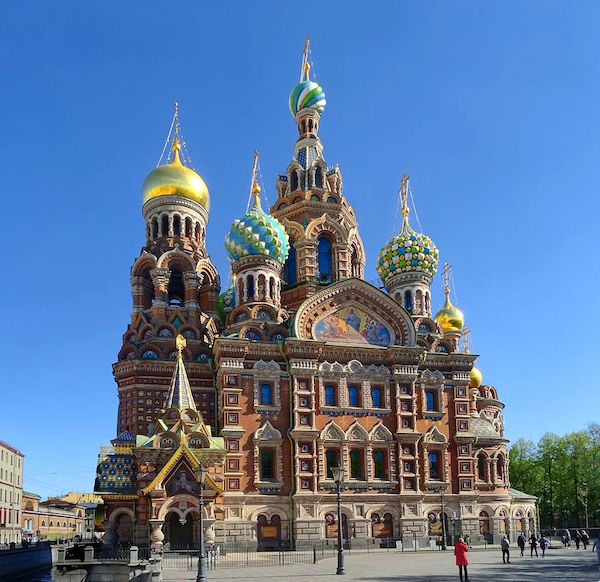
For any colorists among readers, the church is a fever-dream of hues – cobalt, gold and shades of crimson dominate. Inspired? Try matching a few of these tones for a new living room look. You won’t go wrong.
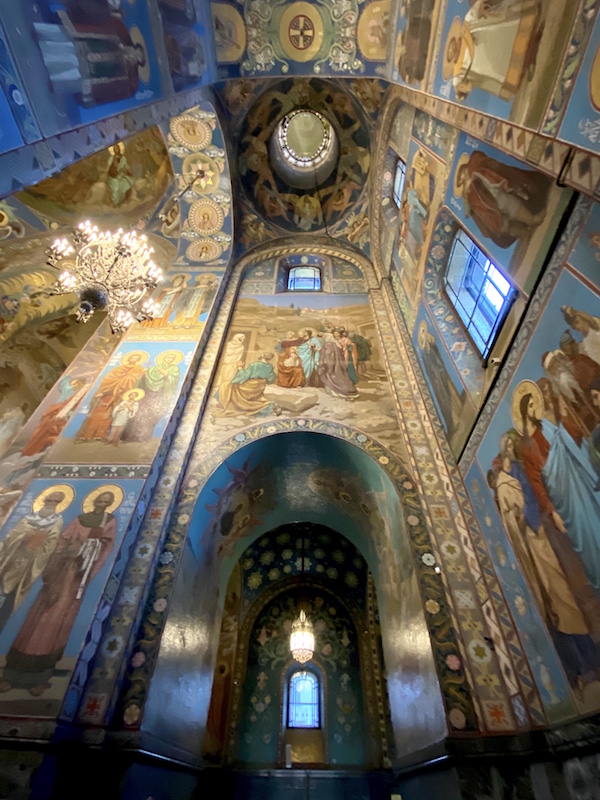
An art- and performance-rich city
St. Petersburg’s Winter Palace – the residence of Russian Emperors from 1732 to 1917 – is an unforgettable experience. You can yet smell the treacherous and shifting allegiances plotted here by Russia’s greatest monarch, Catherine the Great.
Fully restored, the monumental palace was designed by numerous architects who packed the place with 117 staircases, 1,886 doors, 1,500 rooms …
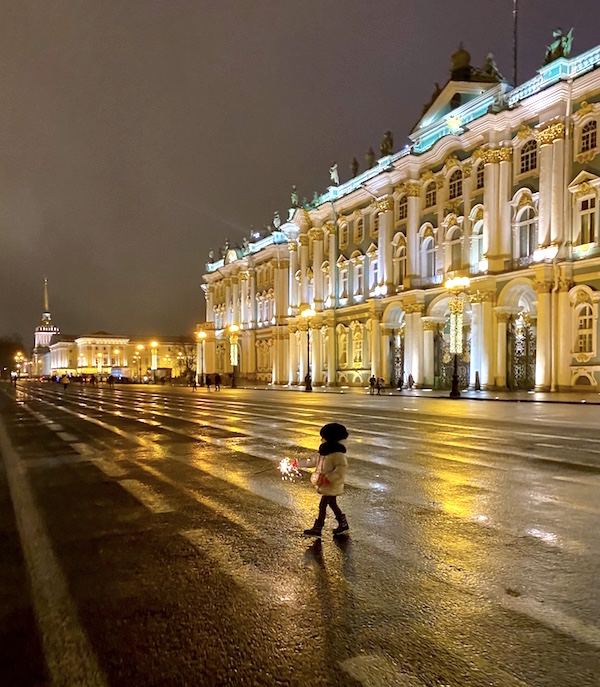
The Hermitage Museum is the building’s cultural crown jewel – the second-largest art museum in the world – founded in 1764 by Empress Catherine the Great. More than three million items are held here, a fraction of which are on display. They range from Egyptian antiquities and Russian art to numerous Rembrandts – part of the Leiden Collection.
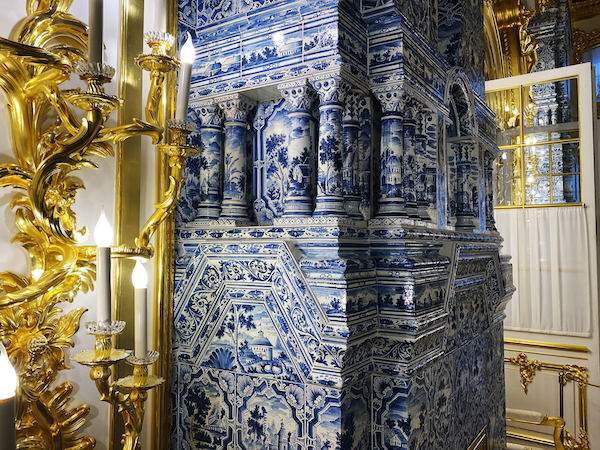
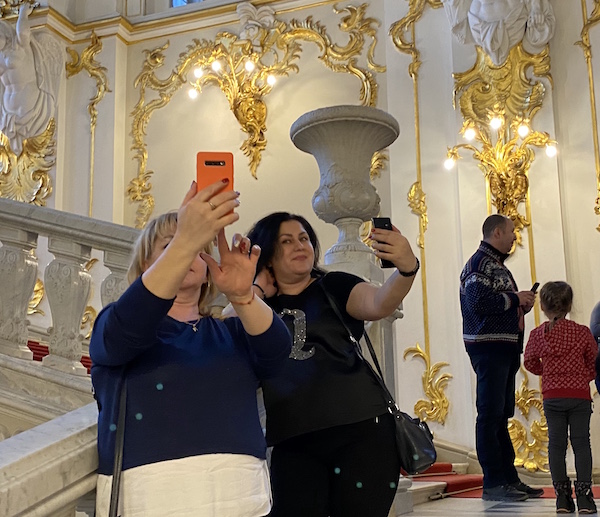
On the backside of the Winter Palace, you’ll find the Hermitage Theater, commissioned by Catherine the Great in the 1780s. The Bolsheviks shuttered the venue after the 1917 revolution and it reopened in 1991. This past January, a performance of Tchaikovsky’s “Swan Lake” was near perfection – even the theater’s original stage machinery is yet in cranking-working order.
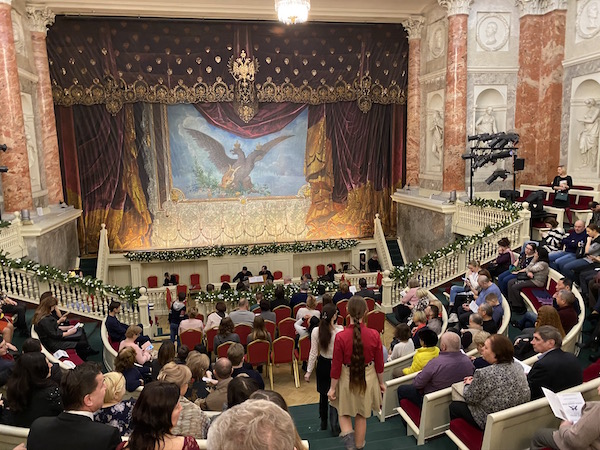
The famed Mariinsky Theatre
Take a half-hour stroll south of the Hermitage and you’ll encounter another showy gem: the Mariinsky Theatre. Opened in 1860, the theatre premiered the work of Tchaikovsky, Mussorgsky, and Rimsky-Korsakov. Today, the venue houses the Mariinsky Ballet, Mariinsky Opera and Mariinsky Orchestra.
In January, I saw the Mariinsky Ballet perform Don Quixote – its world premiere was at Moscow’s Bolshoi Theatre in 1869.
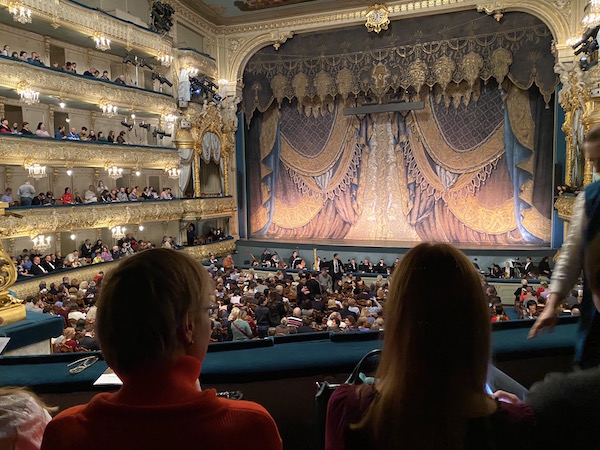
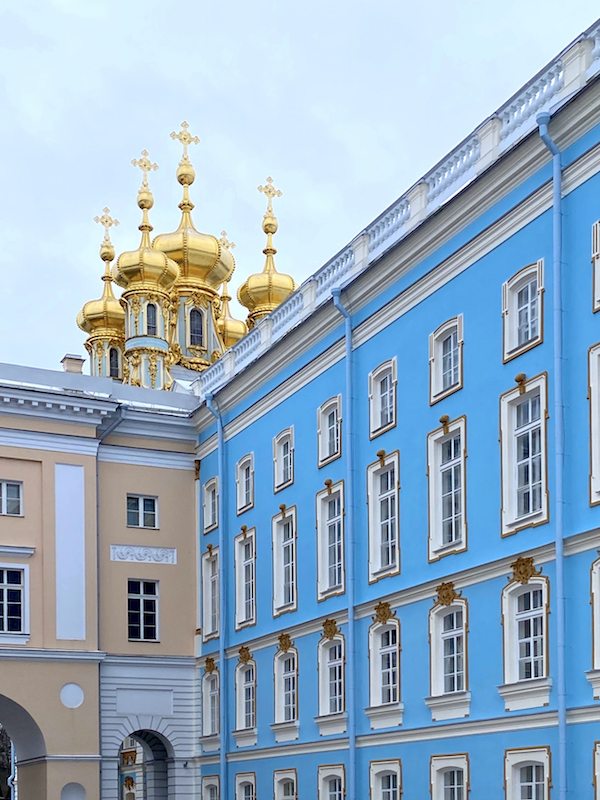
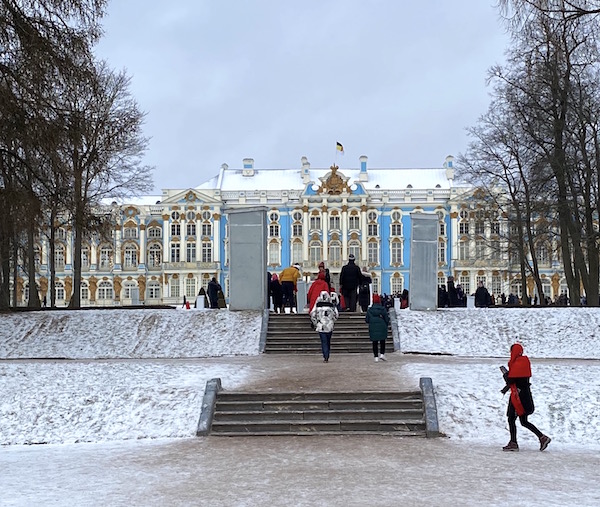
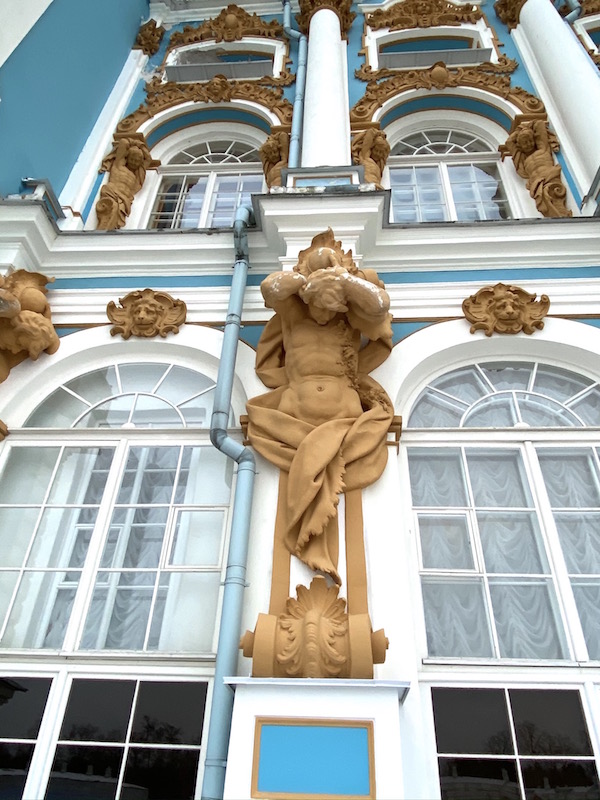
A port built by Dutch shipbuilders
Since the Soviet era collapsed in 1991, St. Petersburg has largely been revitalized (once again). An especially vibrant spot is New Holland, a small port that now brims with shops. It was originally built by Dutch shipbuilders along the left bank of the Neva River in the early 1700s.
The complex includes a performance stage, herb garden, playground and a pavilion.
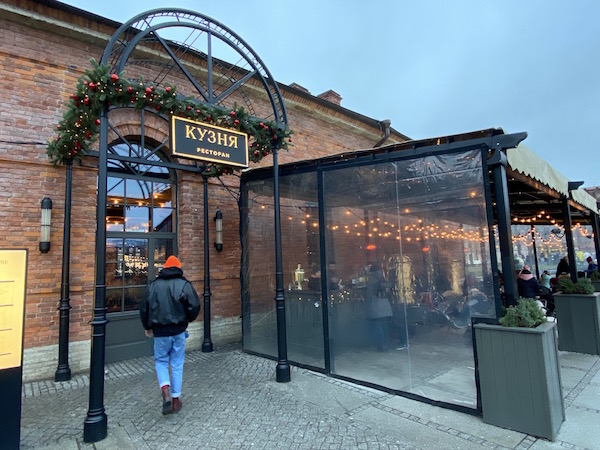
New Holland’s Bottle House – formerly the naval prison – has Art Deco-style elevators amid 163 doors restored from the original blueprints – the building’s a work of art. There’s a bookstore here, ballet studio, cycling studio, Japanese bistro and the Israeli street-food cafe, Bekitzer.
St. Petersburg’s favored hangout: Kuznya House
New Holland’s Foundry building includes Kuznya House club and restaurant. The space consists of various rooms: a ballroom with bar, stage and table seating; a tea parlor with comfy sofas and walls packed with books – and a terrace used during summer months.

The clubby atmosphere is peppered with archive photographs (largely apartment interiors of pre-revolutionary St. Petersburg) and walls of burnished wood and vintage lighting. It’s all framed by thick velvet curtains.
The food centers on local and seasonal produce mastered by chefs Glen Ballis and Ruslan Zakirov. On weekend nights – powered by the band Kito Jempere – the place jumps with fun.
You can download menus at the Kuznya House website, and also reach them via email at kuznya@kuznyahouse.com.
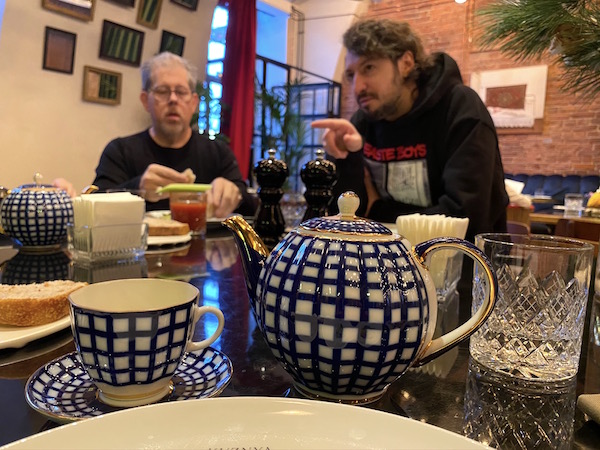
• • • • • •
In 2007, Firebird Tours opened its first office in New York City, later expanding to additional branches that include St. Petersburg, Russia. The agency now covers the entire continent of Europe.
For accommodation, I can recommend the five-star Corinthia, which I stayed at for three nights during my St. Petersburg visit. It’s centrally located on the famed Nevsky Prospect.
The food at the Corinthia excels: Cafe Vienna, a lobby bar and the hotel’s signature Imperial restaurant. Request a seat near the wall-windows that overlook Nevsky Prospect.
Top image: R. Daniel Foster
